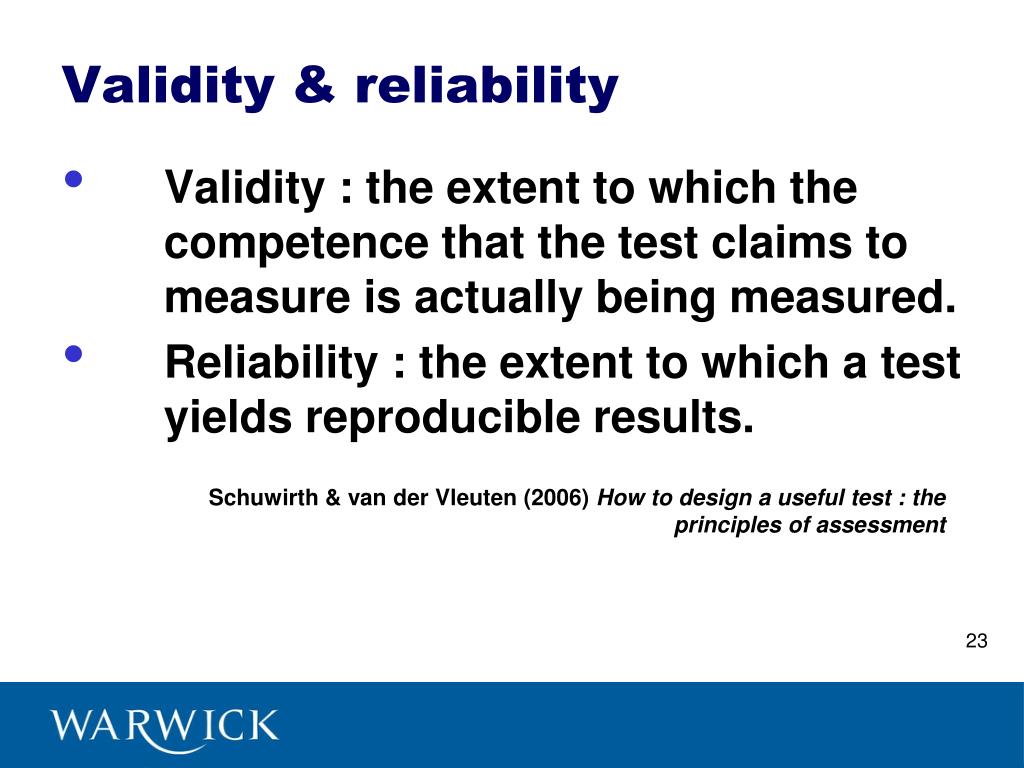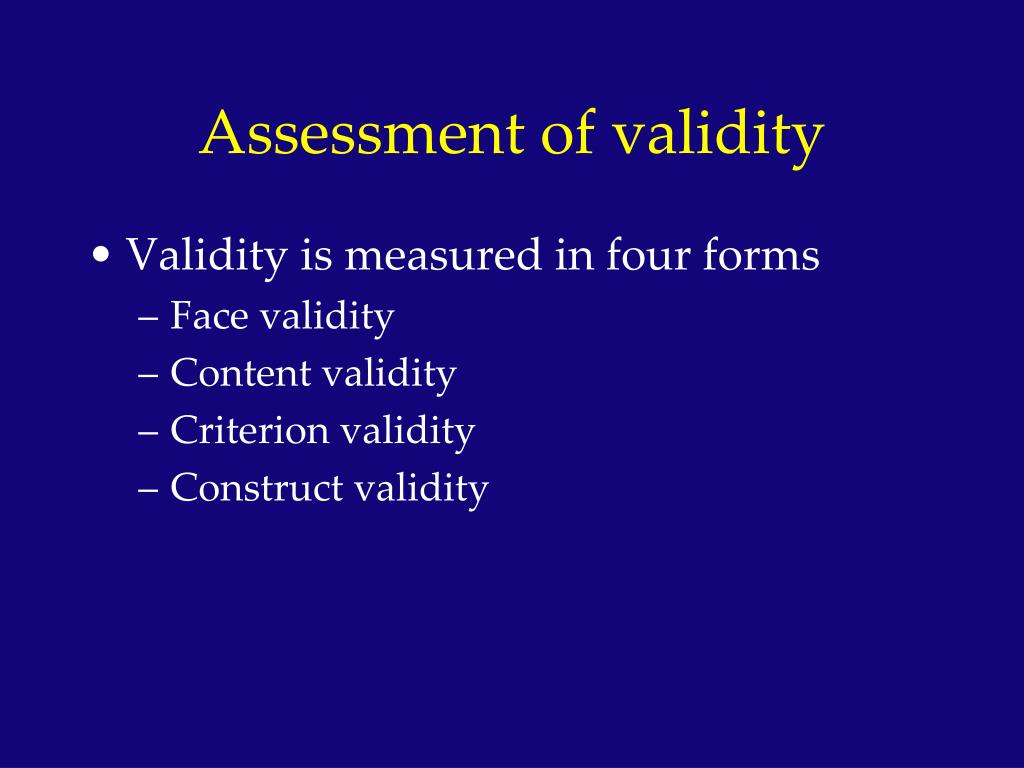

The scales could tell me I am the same weight every time, but it could be the wrong weight. The GCSE could give me the same score both times, but it could be the wrong score. If I weigh myself on a set of bathroom scales several times in a row, then if the scales are reliable I should get the same reading every time.Ī test can be reliable but inaccurate. If I sit a GCSE in English one day and I sit it again the next day (obviously having done nothing in between that might improve my score), then if the test is reliable I should get the same score. So for a test to be reliable it has to provide consistent results across time. Reliable scores show little inconsistency from one measurement to the next. Reliability refers to the consistency of measurement. Here’s my attempt to summarise his points. Koretz gives the clearest and fullest explanations I’ve read of what reliability and validity mean in the context of assessment.

Part three, Why teaching to the test is so bad, is here.

Part one, How useful are tests?, is here. This is part two of my summary of Daniel Koretz’s book Measuring Up: What Educational Testing Really Tells Us.


 0 kommentar(er)
0 kommentar(er)
